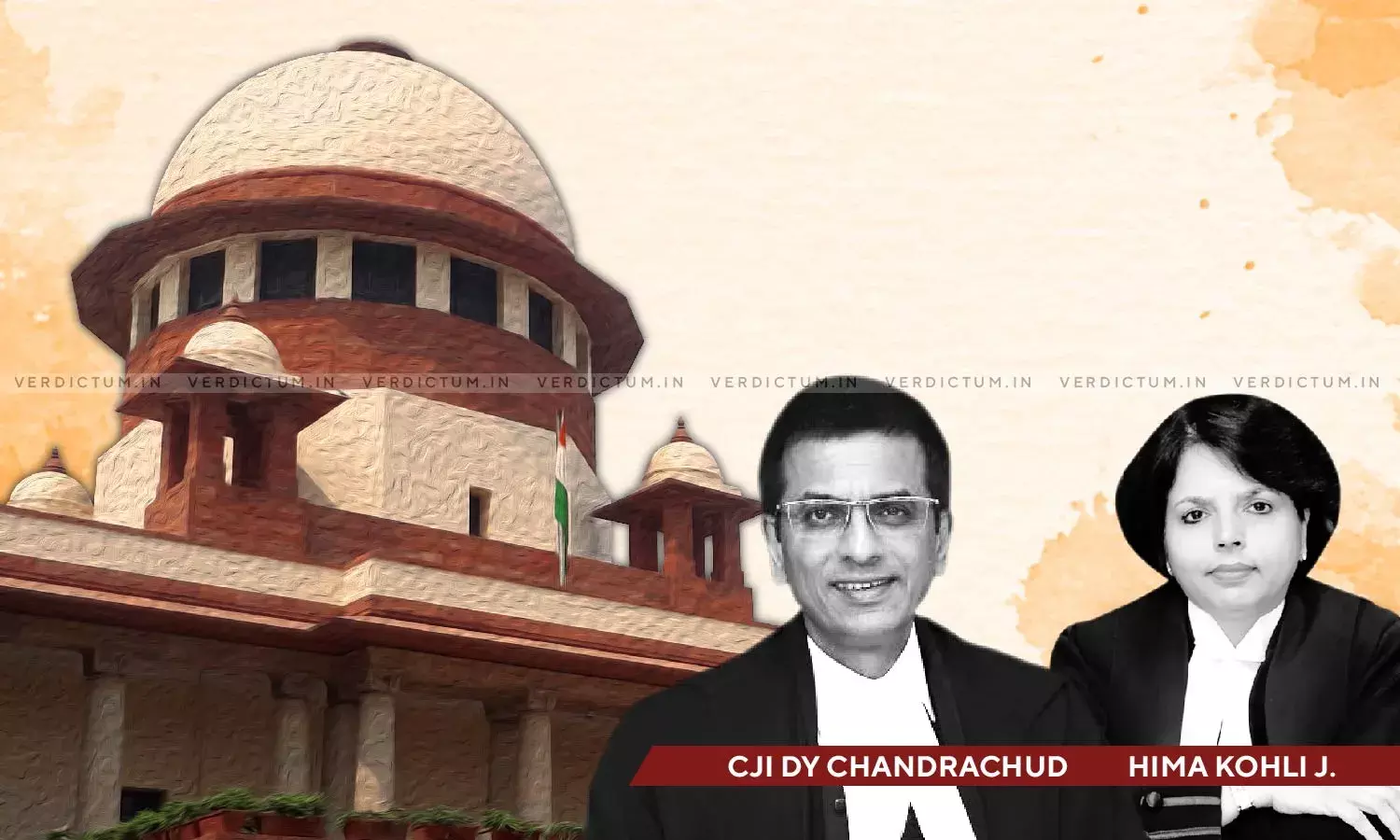When Evidence Is Adequate, Disciplinary Authority Has Discretion To Impose Appropriate Punishment On Delinquent- SC Reaffirms

The Supreme Court has reiterated that on finding the evidence to be adequate and reliable during the departmental inquiry, the Disciplinary Authority has the discretion to impose appropriate punishment on the delinquent employee keeping in mind the gravity of the misconduct.
The Court allowed the appeals filed by the Union of India against the judgment passed by the Division Bench of the Calcutta High Court and observed, "To sum up the legal position, being fact finding authorities, both the Disciplinary Authority and the Appellate Authority are vested with the exclusive power to examine the evidence forming part of the inquiry report. On finding the evidence to be adequate and reliable during the departmental inquiry, the Disciplinary Authority has the discretion to impose appropriate punishment on the delinquent employee keeping in mind the gravity of the misconduct."
The Bench comprising Chief Justice of India Dhananjaya Y. Chandrachud and Justice Hima Kohli observed that "… the High Court ought not to have interfered with the findings of fact recorded by the Disciplinary Authority. Charge-1 levelled against the respondent pertained to negligence and dereliction of duty attributed to him for having failed to prevent theft of 800 kgs of copper wires lying at Alif Nagar scrap yard under his security cover while performing duty in the late hours of 7th November, 2007 upto the early hours of 8th November, 2007."
The Bench further observed that the findings of the Disciplinary Authority had met with the approval of the Appellate and Revisional Authority and that the Single Judge of the High Court ignored the fact that the departmental inquiry was vitiated on account of violation of the rules of natural justice or statute.
Advocate Aakanksha Kaul appeared on behalf of the appellant i.e., the Union of India while Advocate Ranjan Mukherjee appeared for the respondent i.e., the Constable.
In this case, the respondent had joined the Central Industrial Security Force (CISF) as a Constable and was detailed for 'C' shift duty in the area of the Kolkata Port. The local police intercepted a truck loaded with approximately 800 kg of copper wires outside the port premises and informed the CISF about the incident. It was observed that the theft of the said copper wires was committed at the time when the respondent was on duty. Thereafter, the charges were framed against the respondent and the inquiry was done. The Inquiry Officer held that the charges framed against the respondent are proven and hence, the Disciplinary Authority issued a Notice to Show Cause to the respondent.
The plea of the respondent was rejected and the Disciplinary Authority imposed a penalty of dismissal from service. The respondent filed an appeal and after that the revision petition. Then, the respondent filed a writ petition in the High Court, and the Single Judge set aside the punishment of dismissal of service imposed upon him. Such an order was challenged by the appellant but the Division Bench of the High Court rather directed that the respondent would be entitled to be reinstated in service along with full back wages from the date of his dismissal. Hence, questioning such a judgment of the High Court, the Union of India approached the Supreme Court.
The question before the Apex Court was whether the Single Judge and the Division Bench ought to have interfered with the punishment imposed on the respondent by the Disciplinary Authority and upheld by the Appellate Authority as also by the Revisional Authority.
The Court while considering the above question noted –
"To sum up the legal position, being fact finding authorities, both the Disciplinary Authority and the Appellate Authority are vested with the exclusive power to examine the evidence forming part of the inquiry report. On finding the evidence to be adequate and reliable during the departmental inquiry, the Disciplinary Authority has the discretion to impose appropriate punishment on the delinquent employee keeping in mind the gravity of the misconduct."
The Court further noted that there was no good reason for the High Court to have entered the domain of the factual aspects relating to the evidence recorded before the Inquiry Officer. It was also opined by the Court that both Single and Division Bench have committed an error by setting aside the order of dismissal from service.
The Court while agreeing with the decision of the Disciplinary Authority held –
"We find ourselves in complete agreement with the findings returned by and conclusion arrived at by the Disciplinary Authority, duly confirmed by the Appellate Authority and upheld by the Revisional Authority in respect of both the Articles of Charge levelled against the respondent and the punishment imposed on him."
The Court further held that the respondent being a member of the disciplined force, was expected to have discharged his duty diligently and his gross negligence resulted in the theft of 800 kg copper wires.
The Court, therefore, held that "… it is deemed appropriate to quash and set aside the impugned judgment and order dated 9th September, 2021 passed by the Division Bench of the High Court of Calcutta in FMA No.679 of 2019 and FMA No. 680 of 2019 and the order dated 25th June, 2018 passed by the learned Single Judge in WP No.14102 (W) of 2009, while restoring the findings and the conclusion arrived at by the Disciplinary Authority… In our view, the penalty of dismissal from service imposed on the respondent is commensurate with the gross negligence and dereliction of duty on his part."
Accordingly, the Supreme Court allowed both the appeals preferred by the Union of India and dismissed the petitions for Special Leave to Appeal filed by the respondent.
Cause Title – Union of India and Others v. Subrata Nath
Click here to read/download the Judgment


